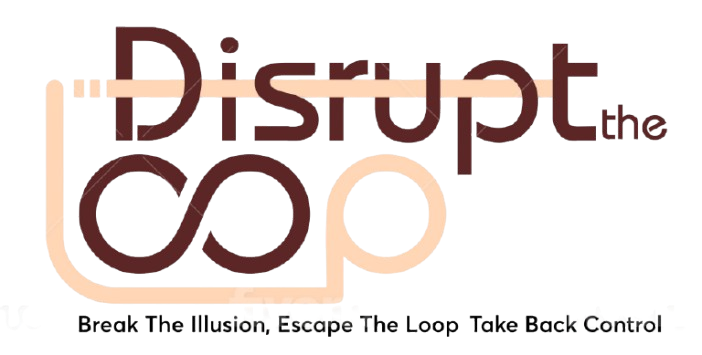Introduction: When Self-Reflection Becomes Self-Sabotage
Self-awareness is widely regarded as the foundation of personal growth. Psychologists, therapists, and self-help gurus alike emphasize the importance of introspection—understanding our emotions, analyzing our thoughts, and confronting our past experiences—to facilitate change and healing.
However, emerging research suggests that excessive self-awareness can paradoxically hinder personal transformation. Instead of leading to progress, introspection can reinforce distress patterns, create cognitive blind spots, and trap individuals in rigid personal narratives.
This phenomenon, which we’ll call the “psychology paradox”, highlights three key mechanisms through which self-awareness can become a psychological roadblock:
- Neural Reinforcement of Distress – How excessive introspection strengthens anxiety and negative emotions.
- Cognitive Biases in Self-Assessment – Why gaining insight doesn’t always translate to real-world change.
- Narrative Identity Entrapment – How defining oneself through personal struggles can prevent growth.
By synthesizing insights from neuroscience, cognitive psychology, and narrative theory, we can rethink the role of self-awareness in transformation and develop more effective strategies for real change.
1. The Neural Trap: How Introspection Strengthens Negative Patterns
The brain is an adaptable, plastic system, constantly reshaping itself in response to repeated thoughts and experiences. This neuroplasticity is a double-edged sword: while it allows for learning and growth, it also means that rumination can physically strengthen neural pathways associated with distress.
Key Findings from Neuroscience
- A 2011 fMRI study by Etkin et al. found that individuals with anxiety disorders showed 23% greater amygdala activation during self-reflection tasks compared to control groups.
- Hölzel et al. (2011) demonstrated that persistent introspection leads to synaptic reinforcement of distress, making it harder for the brain to disengage from negative thought cycles.
How This Creates a Psychological Loop
When individuals repeatedly analyze their emotions and struggles, their brain literally wires itself to maintain those states. Instead of resolving distress, excessive introspection can make anxiety and depression more ingrained.
✅ Practical Takeaway: Instead of overanalyzing emotions, focus on behavioral activation—taking small, concrete actions to break the cycle of neural reinforcement.
2. The Illusion of Cognitive Mastery: Why Insight Doesn’t Equal Change
People often believe that understanding a problem is the same as solving it. However, research suggests that insight alone rarely leads to behavioral change.
The Dunning-Kruger Effect in Self-Improvement
The Dunning-Kruger effect describes how people overestimate their competence in areas where they lack true expertise. This applies to self-awareness as well:
- A 2019 study by Lee & Thompson found that 68% of psychotherapy patients overestimated their ability to change after gaining insight into their behaviors.
- Despite their self-reported progress, actual behavioral modifications were minimal or nonexistent.
Why This Happens
- Emotional understanding feels like progress, creating a false sense of achievement.
- However, insight does not automatically translate into habit change or new behaviors.
- Without concrete action steps, people remain in a loop of self-analysis without transformation.
✅ Practical Takeaway: Pair insight with immediate action steps—every realization should lead to a tangible experiment or behavior shift.
3. The Trap of Narrative Identity: When Self-Awareness Becomes Self-Limitation
Our minds construct narratives to make sense of our experiences. While this can be empowering, it can also trap us in rigid identities that reinforce struggles instead of overcoming them.
Key Research on Narrative Identity
- A 2008 study by Nolen-Hoeksema et al. found that individuals who framed personal struggles as core aspects of their identity had 40% lower recovery rates from depression.
- Those who saw themselves as “a person who always struggles” had a much harder time changing than those who viewed struggles as temporary challenges.
Why This Happens
- Stories feel permanent – Once we internalize a narrative (“I am broken,” “I am a victim,” “I will always struggle”), it becomes self-fulfilling.
- Change threatens identity – If someone defines themselves by their pain, improving can feel like losing a part of who they are.
- Therapy can reinforce this – If therapy focuses too much on past struggles, it can inadvertently deepen identification with suffering.
✅ Practical Takeaway: Actively reconstruct your personal narrative—define yourself not by past struggles but by future potential.
Rethinking Personal Growth: What Actually Works?
The research suggests that self-awareness alone is not enough. In fact, when overused, it can reinforce the very patterns it’s meant to break. Instead, we need a balanced approach:
1. Insight Needs to Be Paired with Action
Every self-realization should immediately lead to a small, measurable action.
Example: Instead of just recognizing that you struggle with social anxiety, commit to one small social action per day, such as making eye contact with strangers or asking a cashier how their day is.
2. Interrupt Neural Distress Loops
Instead of engaging in endless introspection, focus on pattern disruption techniques:
- Use physical movement (exercise, stretching, shaking off tension) to reset brain states.
- Use breathing techniques (box breathing, physiological sighs) to regulate the nervous system.
3. Rewrite Your Personal Story
Actively challenge limiting narratives by constructing new identity statements:
❌ “I am an anxious person.” → ✅ “I am learning to manage stress effectively.”
❌ “I always struggle with relationships.” → ✅ “I am improving my ability to connect with others.”
Conclusion: The Psychology Paradox and the Future of Personal Growth
While self-awareness is valuable, too much introspection can create psychological stagnation. The neuroscience of distress loops, cognitive biases in self-assessment, and the rigidity of narrative identity all suggest that personal transformation requires more than just insight—it demands action, pattern disruption, and intentional identity reconstruction.
Key Takeaways:
✅ Understanding a problem is not the same as solving it.
✅ Self-awareness must be balanced with behavior-based change.
✅ Repetitive introspection can reinforce distress rather than alleviate it.
✅ Your identity is not fixed—challenge limiting self-narratives.

